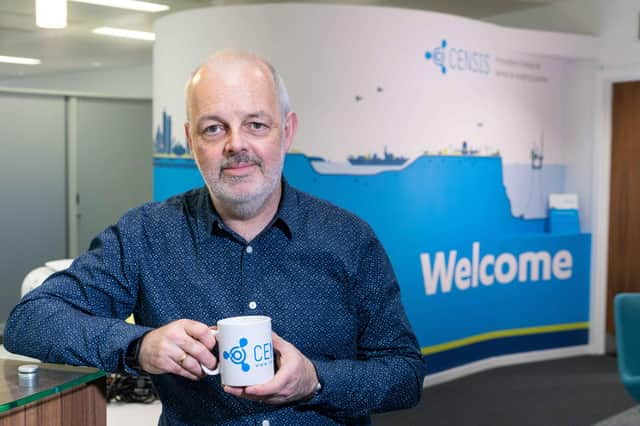Scottish firms backing R&D for post-pandemic recovery


The CENSIS centre, which specialises in sensing, imaging, and Internet of Things (IoT) technologies, saw 21 projects added to its pipeline in the latest quarter, taking the total number to 250 since it was founded eight years ago.
The projects it has been involved in have created and retained nearly 1,000 jobs in Scotland and delivered more than £50 million in project value with investment from industry, academic, and public sector partners.
Advertisement
Hide AdAdvertisement
Hide AdPaul Winstanley, the centre’s chief executive, said the record quarter was a positive sign for the Scottish economy against the backdrop of challenges brought about by the Covid-19 pandemic and subsequent lockdowns.
“Historically, R&D has tended to be among the first costs to be cut in an economic downturn – but our experience of the last 18 months has been that companies recognise the benefits innovation can bring and remain keen to invest,” he said.
“In fact, cash investment in R&D from many of the organisations we work with has actually increased, with an emphasis on digital and technologies that enable companies to operate remotely – whether through digital twins or remote asset monitoring.”
Winstanley said business leaders increasingly recognise that innovation is a way for companies to keep themselves moving forward by streamlining processes, enhancing efficiency, or helping staff to focus on high-value work.
“Continuing to invest in R&D has seldom been more important to business resilience, particularly with remote working likely to remain a feature of how companies operate, and we expect innovation to remain a focus in the months and years ahead.”
CENSIS’s 250th project is a major £12.5m initiative aiming to create three ‘communities of the future’ in Glasgow, Dundee, and Moray, being delivered by a consortium of partners led by Blackwood Homes and Care. It has received funding from UK Research and Innovation funding as part of the Industrial Strategy Challenge Fund’s Healthy Ageing Challenge.
The scheme aims to help older people in Scotland to live longer, healthier, and more independent lives. Each neighbourhood will decide their own focus, with an emphasis on community involvement and co-designing and testing innovations that support healthy ageing such as improving accessibility to, and the adaption of, existing homes as well as the overall design of future housing.
Winstanley described the project as highly significant in bringing a large-scale initiative with potential UK-wide impact to Scotland.
Advertisement
Hide AdAdvertisement
Hide Ad“It also involves a broad range of industry, academic, and other innovation centre partners, underlining what can be achieved through collaboration,” he added.
CENSIS helps organisations explore innovation and overcome technology barriers to achieve business transformation.
It works with organisations ranging from large multinationals and public sector bodies, to SMEs and start-ups and is funded by bodies including Scottish Enterprise, Highlands and Islands Enterprise and the Scottish Funding Council.
Recent projects have included helping East Renfrewshire Council use IoT to deploy a smart road gritting system. Sensors were installed on roads on the outskirts of Barrhead to measure the temperature to target gritting resources in areas most in need.
A message from the Editor:Thank you for reading this article. We’re more reliant on your support than ever as the shift in consumer habits brought about by coronavirus impacts our advertisers. If you haven’t already, please consider supporting our trusted, fact-checked journalism by taking out a digital subscription: www.scotsman.com/subscriptions
Comments
Want to join the conversation? Please or to comment on this article.